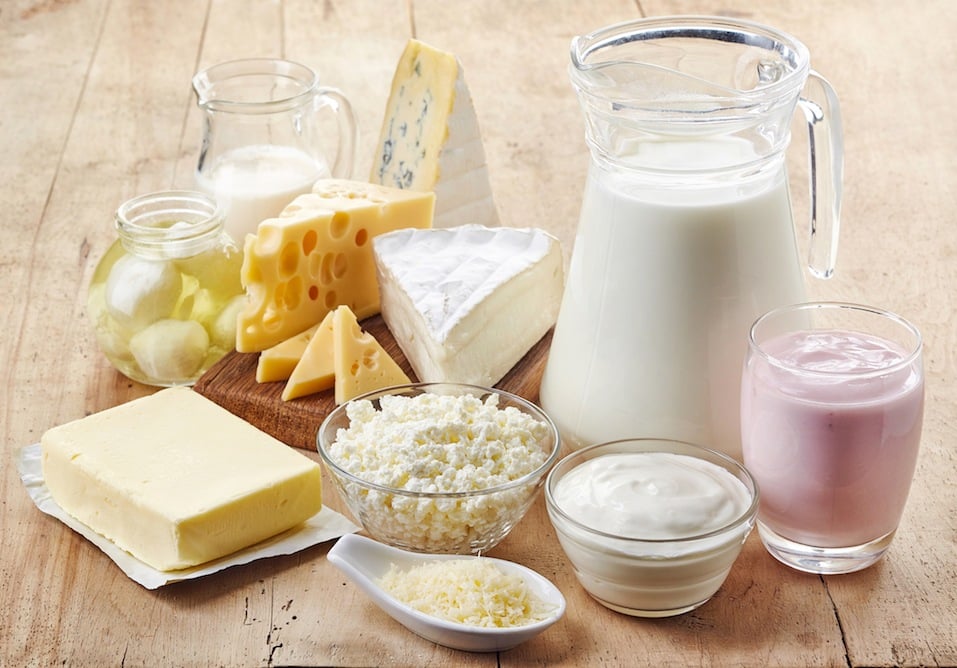You’ve heard it before — stay away from saturated and trans fats, as eating them will give you a heart attack or stroke. And before the full-fledged attack on saturated fats, all fat from food was considered dangerous for the body. Harvard Health Publishing reminds us of the fat-free craze that swept the nation not long ago — but it wasn’t leaving anyone any healthier. In fact, Americans were eating more sugar to replace the fat, which took a serious toll.
It’s important to, first and foremost, understand the role fat plays in the body. This nutrient is a major source of energy, so without it, you may feel extra sluggish. Additionally, it helps the body absorb essential vitamins and minerals, build cell membranes, and protect cells. And certain “healthy” fats, like polyunsaturated and monounsaturated are often touted as the fats you really want in your diet. Recent research suggests, however, that we may be getting some aspects of fat totally wrong.
New research suggests saturated fats protect the heart

Harvard Health Publishing explains saturated fats are extremely common in the American diet, as they’re found in red meat, dairy, and coconut oil. Previous research suggested consuming too much saturated fat led to clogged arteries and high cholesterol levels — and it’s often recommended to limit saturated fat consumption to just 10% of your total calories per day. All of that, however, could change.
Previous research found the link between saturated fat and heart disease isn’t as clear-cut as once thought. And Medical News Today notes a recent study led by the Friedman School of Nutrition Science and Policy at Tufts University in Boston, Massachusetts, is challenging the link between “bad fat” and heart disease even further. The team found that saturated fat — and more specifically, the fats found in dairy — could actually prevent the development of heart disease and stroke over time.
Marcia Otto, an assistant professor at the University of Texas Health Science Center and corresponding author to the paper regarding the new findings, thinks the current dietary guidelines should now be revised. While the Office of Disease Prevention and Health Promotion recommend eating fat-free and low-fat dairy products, Otto says whole-fat foods “are rich sources of nutrients such as calcium and potassium.”
The dairy products you need to have

With this new study in mind, what foods should you be keeping in your fridge and pantry? Here’s what’s recommended.
- Whole-fat milk
You’ve probably reached for the fat-free milk in the past, but it’s time to skip the skim. Not only does whole milk probably not contribute to your heart attack or stroke risk, but it also may promote weight loss and lower your risk of diabetes, says U.S. News & World Report.
Previous research also shows consuming products made with whole milk, like cheese, raises healthy HDL cholesterol levels over time. And many researchers believe dairy also has the ability to reduce inflammation levels.
- Full-fat yogurt
Yogurt’s made from the fermentation of milk, Healthline reports, and you may have reached for fat-free varieties in the past. Do yourself a favor, though, and get the whole-milk kind. Fat-free yogurts are often full of excess sugar to make up for the taste, and that’s particularly bad for your health.
There are plenty of health benefits to yogurt, too. You’ll get plenty of calcium and protein, and the live bacteria found in some types are great for your digestive system.
- Cottage cheese
It’s a favorite among dieters, and for good reason. Cottage cheese is full of protein and makes an excellent snack paired with fruit or on a salad. Healthline explains it’s made from curdled milk and is known for its high protein content. As far as vitamins and minerals go, it’s also rich in B vitamins, vitamin A, and calcium.
It’s true that cottage cheese is lower in fat than other dairy products — but that’s different than a product that’s had the fats purposely removed. For this reason, feel free to eat this cheese without fear.
- Kefir
If you haven’t tried this yogurt drink yet, it’s highly recommended that you do so. WebMD explains kefir is a yogurt-like drink that has tons of live bacteria and yeast, which is great for your gut. It even contains more probiotics than your typical yogurt.
Dieters also love kefir, as it’s naturally low in calories and high in protein. It’s naturally low in fat as well, but like cottage cheese, no sugar is added to make up for the flavor. And if you do come across a kefir brand that has slightly higher fat levels, you can consume it without worry.
- Grass-fed butter
Touted as “one of the healthiest fats on the planet” by EcoWatch, you should really have this product in your fridge. Essentially, butter is pure milk fat, and grass-fed butter has five times more conjugated linoleic acid than grain-fed butter. This acid has shown to help reduce body fat, strengthen bones, and help decrease the risk of cardiovascular disease and cancer.
There are also several studies showing those who consume grass-fed butter have a lowered risk of heart disease, and this makes sense with the new research regarding saturated fat. If you’ve sworn off butter and instead use olive oil, now’s your chance to consider switching back.
Check out The Cheat Sheet on Facebook!
Source: Read Full Article